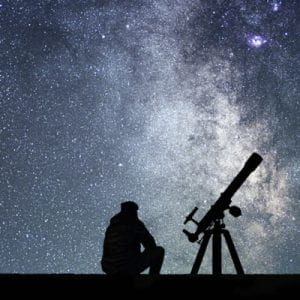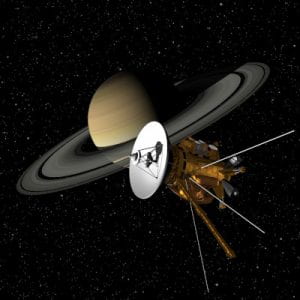Welcome to UC Observatories’ Ask an Astronomer page. We are Astronomy & Astrophysics graduate students at UC Santa Cruz and we are here to answer questions the public sends in about astronomy. Please read the guidelines below before submitting a question.
SUBMISSION GUIDELINES
We will do our best to answer any questions that come our way, but we ask that you try to follow these guidelines when submitting them.
- Look through our archives before submitting. We may have answered your question before, so if you ask it to us again, we may just point you to one of those answers. Searching your question on Google is also a good idea.
- Make sure you are asking a question that has a definite answer. If you want to know about Saturn’s rings, don’t say “Tell me about Saturn’s rings.” Instead, ask “What are Saturn’s rings made of?” or “How did Saturn’s rings form?”
- We won’t do your homework for you. If you ask a question that seems like it is from a homework assignment or test, we will not answer it unless you promise it isn’t before we answer it. Don’t try to fool us, we’ve seen a lot of homework questions in our educational careers. If you phrase your question more generally (e.g. looking for ideas or clarifying a concept), then we will do our best to help, but we won’t solve your problems.
- Allow for up to 2 weeks to receive a response. We are busy people with variable schedules and sometimes a backlog of questions, so don’t come to us if you need an urgent answer.
- If you’re a student, let us know. We will try to prioritize questions from students, and having information on the educational level of our question askers helps us better tailor our responses.
Fill out the form below to ask a question, or send us an email at askanastronomer@ucolick.org. (You don’t need to do both)
Archives
Before asking a question, take a look at questions we have answered in the past to see if you can find an answer. You might learn some other cool stuff too! Questions are organized roughly by complexity within each subcategory. Beginner answers should be understandable to most people, Intermediate questions require a bit of physics and math background, and Advanced questions get into very difficult astronomical concepts.

|

|

|

|

|

|

|

|
Don’t see your question in the archives above?
About Us
Madelyn Broome
Madelyn Broome is a third year astronomy PhD candidate at UC Santa Cruz with her master’s in astrophysics from Cambridge. Answering questions with Ask an Astronomer is an extension one of her greatest joys and long-time commitments: to make science accessible to all through science writing and public outreach. Alongside her efforts to empower, excite, and engage as many people in science as possible, she conducts research into the theory of exoplanet formation and evolution. Her favorite questions from Ask an Astronomer are those that make her think about something close to home in a way she had never thought about it before. She has been a writer for Ask an Astronomer since 2020.
Evan Davis
Evan Davis is a second year astronomy and astrophysics PhD student at UC Santa Cruz. He has been a writer for Ask an Astronomer since 2022.
Diana Blanco

Diana Blanco is a 4th year astronomy and astrophysics Ph.D. student at UC Santa Cruz, where she studies the mysteries of the cosmos. Her research is centered on deciphering the ingredients of the universe such as dark energy and dark matter. When she’s not deep into her research, Diana finds joy through her role in Ask An Astronomer. She loves exploring all sorts of science topics beyond her core expertise and having cool chats with individuals from all walks of life. Her unwavering commitment to diversity, equity, and inclusion resonates with her career aspirations: Diana aims to contribute to the realm of science within the government sector while continuing to foster dialogue and curiosity all around.
Sven Heydenreich

Sven achieved his PhD in Astrophysics at the University of Bonn, where he worked on higher-order statistics to maximize the information that we can extract from the weak gravitational lensing surveys. Now he works within the DESI survey to study the properties of the observed galaxies using the weak gravitational lensing effect. He is mainly interested in constraining fundamental physics using cosmological observations, but is also enthusiastic for science outreach and philosophical aspects of physics and cosmology. In his free-time he likes to spend time in the forest, either hiking or mountain biking.

